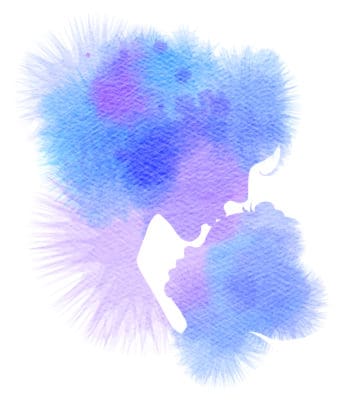Medical Editor: Dr. David Cox, PhD, ABPP
MDMA (4-Methylenedioxy-methamphetamine), also known as Molly or ecstasy, is currently the center of groundbreaking research in the realm of mental health treatment. This synthetic psychoactive substance, historically popularized for its euphoric effects in recreational settings, is now being studied for its potential therapeutic benefits in treating conditions like depression and anxiety. Here, we will explore what research has discovered about MDMA as a therapeutic aid and what is still unknown.
Understanding MDMA in Therapy
MDMA’s characteristic effect is inducing a state of heightened emotional sensitivity, euphoria, and a sense of connectedness. In therapeutic settings, these effects can significantly enhance the process of therapy. For individuals grappling with mental health issues, MDMA’s capacity to reduce fear and anxiety responses is particularly beneficial. It fosters an environment where patients can freely explore and address deep-rooted emotional issues and traumas, which are often barriers in traditional therapy settings.
MDMA in the Treatment of Depression
Recent studies suggest that MDMA could revolutionize the treatment of depression, particularly in individuals who haven’t responded to conventional treatments. Unlike standard antidepressants that gradually alter brain chemistry over weeks or months, MDMA acts rapidly, increasing levels of serotonin, dopamine, and norepinephrine. This swift biochemical shift can provide immediate relief from depressive symptoms.
One of the most compelling aspects of MDMA-assisted therapy is its potential to offer lasting relief from depressive symptoms after just a few sessions. This is in stark contrast to most antidepressants, which require ongoing use. MDMA’s ability to enhance the effectiveness of psychotherapeutic techniques, such as cognitive-behavioral therapy (CBT), is a significant breakthrough, offering hope to those suffering from chronic or treatment-resistant depression.
MDMA’s Role in Alleviating Anxiety
MDMA’s potential in treating various anxiety disorders, including PTSD, is currently being explored in clinical trials. Its ability to dampen the fear response is particularly beneficial for those with anxiety, enabling them to confront and process traumatic memories in a safe therapeutic setting. For individuals with life-threatening illnesses or conditions like autism, where anxiety is a significant concern, MDMA-assisted therapy could provide a much-needed alternative to traditional treatments like anti-anxiety medications, which often show limited effectiveness.
The Future of MDMA in Therapeutic Settings
The horizon of mental health treatment is witnessing a promising dawn with MDMA’s potential roles. As we continue to uncover the depths of its impact on conditions like depression and anxiety, the medical community stands at the brink of a potential paradigm shift in therapeutic practices. This shift is not just about introducing a new treatment option; it’s about redefining our understanding of mental health care and the tools we use to foster psychological well-being.
Holistic MDMA Therapy
The promise of MDMA therapy extends beyond its immediate effects; it challenges and inspires a reevaluation of traditional approaches, encouraging a more holistic and patient-centered view of mental health treatment. The growing body of research not only highlights the effectiveness of MDMA in controlled settings but also underscores the importance of comprehensive and holistic care, where medication is part of a broader therapeutic strategy. This approach represents a more nuanced understanding of mental health, one that respects the complexity of human emotions and the intricate ways in which our brains function.
Shifting Legal Landscape of MDMA Therapy
As of now, MDMA remains classified as a Schedule I drug, meaning it’s not legally available for clinical use outside of federally approved settings. However, this status could change as more research highlights its potential benefits. Organizations like MAPS are at the forefront of this research, advocating for MDMA’s reclassification based on its therapeutic potential. MAPS recently filed an application with the FDA for MDMA-assisted therapy, specifically targeting PTSD treatment. MAPS is pursuing a priority review from the FDA, which could lead to a decision in as little as six months.
Safe and Effective MDMA Use
While the therapeutic prospects of MDMA are promising, it’s crucial to recognize the risks associated with its use, especially in non-regulated settings. Illegally obtained MDMA may be contaminated and unsafe. Moreover, without professional guidance and a controlled therapeutic environment, there’s a risk that MDMA could exacerbate mental health issues rather than alleviate them.
MDMA and Neurodiversity
Individuals with autism are at high risk for developing social anxiety, particularly those who are on the more high-functioning end of the spectrum and whose condition may not be recognizable to people who are unaware of it. The expectation to think and behave in ways that conform to a specific set of social norms can be overwhelmingly debilitating in this population. MDMA is being studied for its potential benefit in treating social anxiety in adults with autism, mainly due to anti-anxiety medications frequently showing up as ineffective when addressing this issue in this population.
MDMA and Chronic Illness
Anxiety and depression are common conditions that occur in people living with life-threatening illnesses, such as cancer and serious autoimmune conditions. Understandably, such ailments cause immense existential distress that may not be sufficiently responsive to first-line treatment methods. MDMA-assisted therapy may offer a potential solution to this dilemma. Sarah Hogate Bacon, when writing about her guided experience with therapeutic MDMA to alleviate acute anxiety associated with life-threatening lung disease, said “I had a sense of safety, trust and gratitude for my body, which had betrayed me with illness and orthopedic calamities.”
How to Get a Balanced Perspective on MDMA Therapy
The exploration of MDMA as a treatment for depression and anxiety marks a significant shift in the field of mental health. As research continues to unveil its potential, it’s essential to approach this new frontier with caution, balancing optimism with a clear understanding of the risks and the current legal constraints. For individuals interested in the therapeutic potential of MDMA, staying informed about ongoing research and developments is crucial. The MAPS website provides up-to-date information on clinical trials and studies, while Psychable’s comprehensive guides offer insights into the effects, risks, and broader context of MDMA in the realm of mental health.
Frequently Asked Questions About MDMA for Treating Depression
What is MDMA and how is it used in therapy?
MDMA, also known as Molly or ecstasy, is a synthetic psychoactive substance. In therapeutic settings, it’s used to enhance emotional openness and reduce fear response, aiding in the treatment of mental health issues like depression.
Can MDMA effectively treat depression?
Recent studies suggest MDMA could be a promising treatment for depression, particularly in treatment-resistant cases. It works rapidly on brain chemicals like serotonin, offering potential for quick relief from depressive symptoms.
How does MDMA help with depression disorders?
MDMA is being researched for its ability to alleviate depression, especially in PTSD treatment. By reducing fear and anxiety responses, it allows individuals to process traumatic experiences more effectively in a therapeutic setting.
Is MDMA legally available for depression treatment?
Currently, MDMA is classified as a Schedule I drug and is not legally available for clinical use outside approved research settings. However, ongoing research might influence its legal status in the future.
What are the risks associated with MDMA use in therapy for depression?
While MDMA shows therapeutic promise, risks include potential adulteration in non-regulated settings and the exacerbation of mental health issues if not used under professional guidance. Its safety and effectiveness in a controlled environment are still under research.
Where can I find more information about MDMA’s role in mental health?
For the latest research and information on MDMA’s role in mental health treatment, visit the MAPS website and explore comprehensive guides like Psychable’s Beginner’s Guide to MDMA.
Are there any ongoing clinical trials for MDMA in depression and mental health treatment?
Yes, there are ongoing clinical trials exploring MDMA’s use in treating mental health conditions, particularly MDMA for depression and PTSD. These trials are crucial in determining the drug’s safety, effectiveness, and potential future as a therapeutic tool.
Want to Learn More About MDMA and Depression?
Check out Psychable’s comprehensive library of resources about MDMA.





